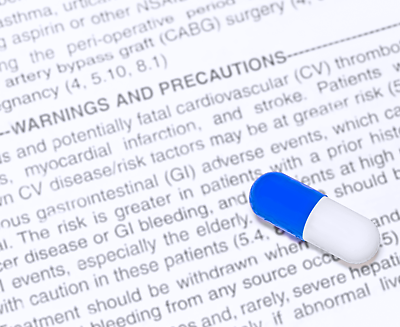1 in 10 Serious or Unexpected Adverse Drug Events Not Reported to FDA in Time
Abstract
While increased enforcement may help to decrease violations, physicians and patients may also be able to play a role in reducing the time it takes for information on adverse drug-related events to reach the FDA.
The choice to prescribe any drug should follow a careful consideration of the benefits and risks. That consideration ideally would include the latest available evidence, but as a recent study in JAMA Internal Medicine has found, drug companies delay sending reports of serious or unexpected adverse events to the Food and Drug Administration (FDA) about 10 percent of the time—and an even greater percentage delay disclosing when patient deaths were involved.

Around 10 percent of serious or unexpected side effects of medication are not reported to the FDA in a timely manner.
Per FDA regulations, any adverse drug-related event that results in a serious incapacity (for example, hospitalization, disability, or death) or involves symptoms not listed on the warning label is classified “expedited,” meaning manufacturers need to forward such reports to the FDA within 15 days of being made aware of the event. However, anecdotal evidence has suggested that drug companies do not always meet this deadline.
Researchers at the University of Minnesota and Stanford University did a thorough review of over 1.6 million expedited reports that were sent to the FDA from drug manufacturers between January 2004 and June 2014. They found that a total of 9.9 percent of these reports were not submitted within the 15-day window (5.2 percent were reported to the FDA 16 to 90 days after the event, 2.2 percent were reported 91 to 180 days late, and 2.5 percent were reported after 180 days).
These numbers might be a slight underestimate, said study author Pinar Karaca-Mandic, Ph.D., of the University of Minnesota’s School of Public Health, as there have been reports that drug companies misclassify the severity of an event to remove the expedited label.
Patient death was one of the biggest factors for a delay. Around 40,000 patient deaths were reported during the time period of the study, and 13 percent of these reports were past the 15-day window, including 3.3 percent which were reported after 180 days.
“It is possible that manufacturers spend additional time in verifying reports concerning deaths, but this discretion is outside the scope of the current regulatory regime,” the authors noted.
“Such reporting delays should never occur, as they mean that more patients are exposed to potentially avoidable serious harm, including death,” Rita Redberg, M.D., a cardiologist at the University of California, San Francisco, and editor of JAMA Internal Medicine wrote in an accompanying commentary. “However, no disciplinary actions have been taken when companies fail to submit reports to the FDA in the timeframe required. Clearly, the lack of consequences contributes to a lack of deterrence for these illegal and dangerous delays.”
If the FDA deployed disciplinary measures such as withdrawing a drug approval (which it has the power to do), that might spur more compliance, Redberg noted.
“However, without knowing the costs involved in enforcement, it’s difficult to say how effective such an action would be,” Karaca-Mandic told Psychiatric News.
A more straightforward remedy, she suggested, would be to urge consumers—and especially physicians—to report any observed or diagnosed events directly to the FDA as opposed to the manufacturer.
Direct reporting is consumers’ and physicians’ right, but as Karaca-Mandic noted, such reports made up only 5 percent of the total reports the FDA received between January 2004 and June 2014.
This study was funded by the National Institutes on Aging and the University of Minnesota. ■
Health care professionals and patients should report any adverse events or side effects related to the use of approved medicines to the FDA’s MedWatch Safety Information and Adverse Event Reporting Program.



